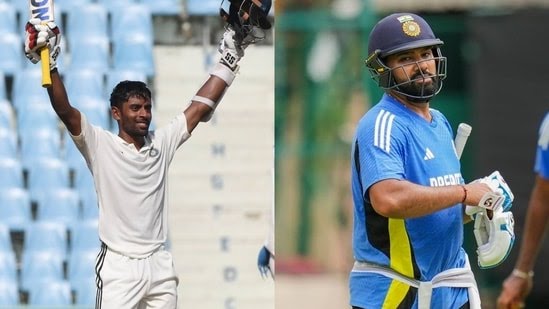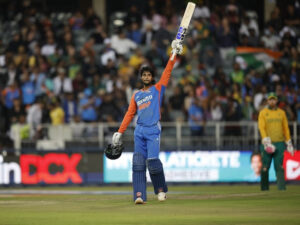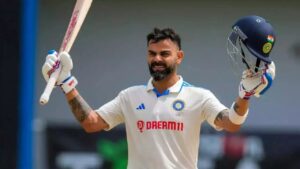
Abhimanyu Easwaran Breaks Silence on New Zealand Test Snub: Sparks Debate Amid Rumours of Replacing Rohit Sharma for Australia Clash
In a dramatic turn of events, Indian cricketer Abhimanyu Easwaran has finally addressed his much-discussed omission from the Test squad during India’s tour of New Zealand, and the buzz surrounding his possible elevation to captaincy in the absence of Rohit Sharma for the first Test against Australia. Easwaran’s comments have ignited intense debates across cricketing circles, with opinions divided over whether the right-handed batsman has been treated unfairly by the selectors or if the media hype around him is misplaced.
The New Zealand Test Snub: A Case of Selective Favoritism?
Easwaran’s exclusion from the Test squad for the New Zealand tour raised eyebrows within the cricket community. The Bengal opener, who has consistently piled up runs in domestic cricket, was seen by many as a natural successor to India’s top-order vacancies. His name was tossed around in nearly every cricketing discussion about who would carry forward India’s batting legacy in red-ball cricket. Yet, despite his stellar performances in Ranji Trophy and India A tours, Easwaran was overlooked.
Finally breaking his silence on the issue, Easwaran said in a recent interview, “I was disappointed, obviously, but it’s part of the journey. The team management makes decisions they think are best for the team. All I can do is focus on my game.”
While his words were diplomatic, the underlying frustration was palpable. Many fans believe that players like Easwaran, who have continuously proven their worth, are often sidelined in favor of cricketers with better connections or those seen as marketable commodities. Questions are being raised about the selection criteria and whether consistent domestic performers are unfairly overshadowed by those with IPL stardom or social media clout.
Replacing Rohit Sharma? Easwaran’s Response Fuels Speculation
As if the controversy surrounding the New Zealand snub wasn’t enough, recent reports suggest that Easwaran is in line to replace Rohit Sharma as India’s Test captain for the much-anticipated first Test against Australia. Rohit, dealing with a reported injury concern, might miss the crucial fixture, and Easwaran’s name has been thrown into the mix as a possible replacement. The 28-year-old’s response to these rumours has only added fuel to the fire.
“It’s flattering to hear such things,” Easwaran remarked when asked about the speculation. “But honestly, these decisions are up to the selectors and the management. My focus remains on scoring runs and contributing to the team whenever I’m called upon.”
While Easwaran remained humble in his response, the mere mention of his name as a potential replacement for someone of Rohit Sharma’s stature has sent shockwaves through the cricket world. Many see it as a bold move, while others believe that Easwaran’s name is being sensationalized without any real basis.
The Rohit vs Easwaran Debate: Too Soon for the Young Opener?
Replacing a seasoned and proven captain like Rohit Sharma with someone who has not yet made his Test debut is undoubtedly a controversial proposition. Rohit, who has led India to significant victories in both Test and limited-overs formats, is seen as a critical figure in Indian cricket. Easwaran, despite his domestic success, is still unproven on the international stage, making his potential elevation seem premature to some.
Critics argue that this speculation reflects the often erratic nature of Indian cricket’s selection politics. There have been instances where promising players, after years of waiting, are thrown into high-pressure scenarios without adequate international exposure, only to crumble under the weight of expectations. Is Easwaran ready to lead a side in the cauldron of an India-Australia series? Many doubt it.
On the flip side, supporters of Easwaran believe that it’s time for Indian cricket to break away from its over-reliance on star names and trust in its domestic talent pipeline. Easwaran, they argue, is hungry, talented, and has nothing to lose. His calm demeanor and ability to play long innings make him a suitable candidate to lead India’s batting order, even in the most testing situations. If he’s not given a chance now, they ask, when will he be?
A Bigger Issue: Is India Failing Its Domestic Performers?
Beyond the specific cases of Easwaran and Sharma, this controversy sheds light on a broader issue within Indian cricket—how the system treats its domestic stalwarts. While the IPL serves as a launchpad for white-ball cricketers, those excelling in first-class cricket are often left in the shadows, waiting endlessly for an opportunity that may never come. Is India doing enough to nurture and promote its domestic stars?
Easwaran’s exclusion from the New Zealand series and the subsequent rumors linking him to a captaincy role highlight a key dilemma: India’s cricket ecosystem might be failing to strike the right balance between grooming future stars and leaning on established names. The constant cycle of overlooking consistent domestic performers for high-profile IPL stars or players with a “big name” aura could come back to haunt the team in the long run.
Conclusion: A Defining Moment for Easwaran and Indian Cricket
Whether Easwaran will get the chance to prove himself in the upcoming Australia series remains to be seen. But one thing is clear: his name has entered the spotlight, and how Indian cricket handles this situation will set a precedent for how it treats its domestic talent in the future.
For now, the debate rages on. Is Abhimanyu Easwaran the next big thing in Indian cricket, or just another casualty of selection politics? Time will tell. But if given the chance, Easwaran has the potential to either vindicate his supporters or validate the skeptics. Either way, the drama surrounding his career is far from over.






